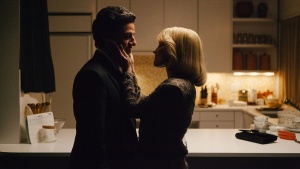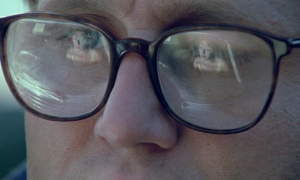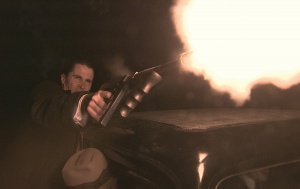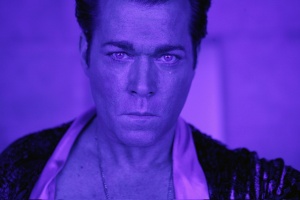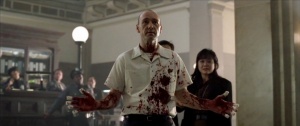
Lorna is in Belgium on false pretenses. She married a man, a junkie, in order to gain citizenship (and a cash reward). The men who arranged her relocation to Belgium from Albania have a plan for her. Once she is widowed — and the men will see to it that she becomes a widow — she is to marry a Russian, who will use her legal status as a Belgian to gain his own citizenship. When she begins to care for her husband, who is trying hard to dig out of the hole he’s in, with some success, she starts trying to gain him a reprieve from the awful fate that he’s too far into his haze to anticipate. The film is truly Lorna’s story. Not once is the film’s audience given information Lorna is not privy to, or shown a scene that she doesn’t witness. This intense subjectivity, and Lorna’s eventually breakdown in the face of her experience, ultimately yields an unsettling examination of the morals of desperation and the sometimes desperate nature of morality.
I came a little late to this particular Dardennes party, so I was just a distant spectator to the dust-up that occurred when blogger Nictate wrote an entry essentially accusing the brothers of misogyny over their treatment of Lorna. Nictate found this slight, vaguely pixie-ish woman to be just a vile, iredeemable creation that reflected poorly on her gender. (Actually, she calls her “one of the most contemptible characters ever committed to celluloid.”) But that’s an unfair reduction of Lorna’s circumstance. It’s true that she’s allowed herself to be caught up in a vile scheme, but it’s clearly not a scheme of her own making. It’s clearly not even her idea, and she might not comprehend at first the real implications of what she’s agreed to do. Nothing is said about the life that Lorna left behind in Albania, but her lack of nostalgic sentiment suggests it was not a particularly comfortable one. (What sort of situation might you expect to be in store for a wisp of a young Albanian woman in the kind of situation that offers her chances to consult with Russian mobsters on her life choices?)
It’s true that, realistically, the plan calls for Lorna to be an accomplice to murder. (Actually, it seems to have been hatched with the expectation that the poor bastard’s habit will obviate the need for anyone else to do the deed but his own enervated, drug-ridden veins.) And she has selfish motives — she believes she will use her proceeds from the scheme to open a quaint café with her real boyfriend. But she spends the first section of the film looking for a way out of her deal with the devil. Her husband believes the plan is for them to remain married as long as is necessary to allay the suspicions of the authorities, and maybe he hopes that her presence will help him quit the habit and stay quit. But when the time comes for him to speed the divorce process, by smacking her around a little, he refuses to do it. Importantly, it’s not just the act of physical violence that repels him, but also the idea that he would be known as the kind of man who would hit a woman. He may be a junkie whose life has been assigned an exact and petty value by the mobsters who wish to exploit his naivete, but he has morals, and pride. He wouldn’t be able to live with his guilt if he allowed himself to clobber his wife. And it’s in the face of his gentle rightness that Lorna starts to come undone.
And here the SPOILERS begin in earnest, so be warned.
It can hardly be a surprise that, after all Lorna’s efforts to save him, Claudy ends up a murder victim anyway. It’s a lousy way to treat a lonely junkie, for sure, but Lorna can’t shoulder all the blame. This woman is not sophisticated. She is being manipulated by what appear to be career criminals. She is in control of neither her own life nor her own choices. She is hardly in control of what happens to her psychology, when she first flings off her clothes impulsively and has sex with Claudy and when she later begins to suffer from pseudocyesis. (I stole that two-dollar word from a comment by Mr. Mike D’Angelo, can’t remember exactly where.) At this development, the film threatens to go off the rails — as I watched, it felt a little like a cop-out, or even a pointedly sexist bit of character devaluation. But on reflection, I find that even this element is appropriate in that it deepens the film’s ultimate tragedy. It also, ironically, redeems Lorna even as it punishes her. Finally, this picture of is not a portrait of callous self-interest but of despair. In the face of the atrocity that she has allowed to be committed, all she can do is pretend that she’s holding some tiny piece of a dead man inside her belly. For if even that scrap of humanity is gone from her body, what else does she have left?
